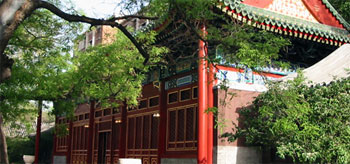History of Central Conservatory of Music
Central Conservatory of Music (CCOM), located in Beijing, is the key institution of higher learning in music directly under the Ministry of Education in China. Founded in 1950, it has been established from other music schools dating back to the 1920’s. In 2000 it was classified as one of the key universities in the 11 Project?(a national project to construct 100 leading universities in China in the 21st century).

Though founded in 1950, the history of the Conservatory can be dated over half a century ago, for one of its forerunners, the Music Department of the Yenching University, was organized back in 1927, the others being the Music Department of the Literature and Art School of the North China University (1939), the National Academy of Music (1940), the Music Department of the National Peiping School of Arts (1946), the Chung Hwa Academy of Music (Hong Kong and Shanghai 1946), and the Music Department of the Northwest Lu Hsun institute of Literature and Art. Nevertheless the tradition and faculty of the National Academy of Music was mainly carried over by the Conservatory.
Having served for the past 55 years both as a music education center for training professional musicians and a research-composition-performance center for developing music education of society, the Conservatory has grown into a large institution of high prestige capable of offering the whole range of curricula for musical training, and representing the level of music education in China.
The current enrolled students number is more than 1,000 and the teaching and administrative staffs total about 700. Professors and associate professors make up one third of the faculty. Over 3,000 students to date have graduated from the Conservatory, including more than 40 students from Korea, Vietnam, Cambodia, Thailand, Indonesia, Algeria, the United States, the United Kingdom and Japan. Many of the graduates are now the core members of music schools, art organizations and research institutes in all parts of China, and some of them have been ranked among the eminent Chinese musicians.

